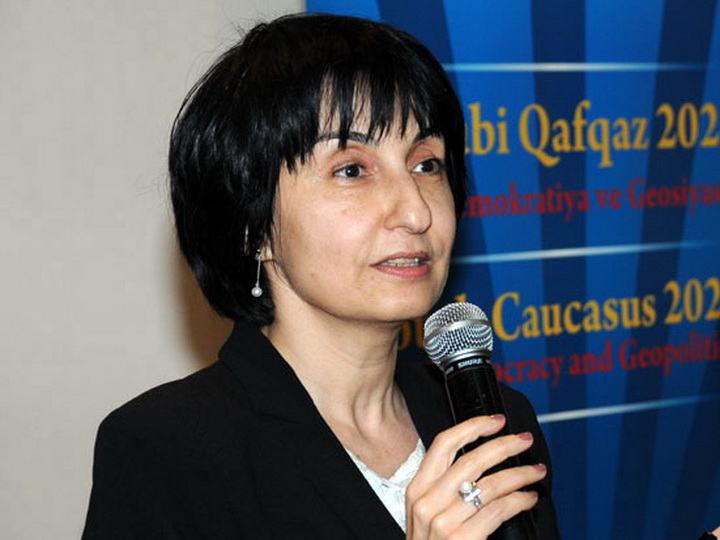Confronting human atrocities: Case of Nagorno-Karabakh

Dr Gulshan Pashayeva
On July 17 the International Criminal Court (ICC) along with the world community celebrated the Day of International Criminal Justice.
Undoubtedly the role of this international body is extremely important as a key institution to assist citizens to achieve justice when they confront with human atrocities taken place in different parts of the world.
It is also well-known that the civilian population – including the elderly, women and children – is most vulnerable during any war or armed conflict. From a physical perspective, civilians can be killed, raped and wounded, left with short-term injuries or long-term disabilities; while, longer term, and from a social perspective, they may be taken hostage, or become refugees or long-term internally displaced persons (IDPs).
It is therefore necessary that the appropriate institutions prosecute serious violations of the law in the form of violent and deliberate acts against the civilian population, such as the destruction of people’s properties, or civilian deaths due to the intentional bombardment of civilian residents.
For example, there were several cases during the 20th century where international courts such as the Nuremberg trials, the International Criminal Tribunal for former Yugoslavia, International Criminal Tribunal for Rwanda, etc., have dealt with such issues.
Unfortunately, the human atrocities that Azerbaijanis and Armenians encountered during the Nagorno-Karabakh conflict have not yet been prosecuted by any international court. This unresolved armed conflict has been marked for more than two decades by systematic violations of international humanitarian and criminal law as well as breaches of several articles of the Universal Declaration of Human Rights.
A recent tragic incident that occurred in the village of Alkhanli in the Fizuli district on July 4, around 4.5 to 5 kilometres from the Line of Contact between Armenian and Azerbaijani armed forces, represents the recent vivid manifestation of this ongoing trend. As a result of Armenian armed forces firing 82mm and 120mm mortars and grenade launchers in direction of civilians and civilian facilities, a two-year-old girl child and her fifty-year-old grandmother were killed. In addition, fifty-two-year-old another women was wounded and hospitalised.
It should also be noted that, according to the State Committee on Family, Women and Children’s Affairs, 33 children were wounded, of whom 14 died, as a result of shelling by Armenian armed forces during the 23 years of the ceasefire agreement established between the conflicting parties in 1994. At the same time the most visible and reprehensible violations concern acts of war and armed violence against civilian populations that happened in early 1990s.
Let us not forget that, through its actions to support its ethnic kindred in Nagorno-Karabakh, largely as a kin state, Armenia is responsible under public international and international humanitarian law, for its use of military force to forcibly expel all Azerbaijani inhabitants from former Nagorno-Karabakh Autonomous Oblast (NKAO) and another seven adjacent Azerbaijani districts around NKAO in 1992–93.
Organization of Islamic Cooperation (OIC) deems the actions committed by the Armenian armed forces against the Azerbaijani population on the occupied territories to be a crime against humanity. This provides the legal grounds for bringing to responsibility high-ranking officials of Armenia who were involved in the crimes against the Azerbaijani population on Azerbaijan’s territory, including the genocide committed against civilians in the town of Khojali.
By the way the Khojaly tragedy was recognized as an act of genocide and a crime against humanity at the 12th session of the Islamic Summit Conference of the Organization of Islamic Cooperation, held with the participation of OIC Heads of State in Cairo (Egypt) on 2–February 02-07, 2013.
Azerbaijan also highly appreciate Pakistan’s just stance in regard to Nagorno-Karabakh conflict. Today Pakistan is the only country in the world that has not recognized Armenia due to its occupation of the one fifth of the internationally recognized territory of Azerbaijan. At the same time the Senate Committee on Foreign Relations of Pakistan recognized Khojali massacre as a genocide on February 1, 2012.
According to Ukrainian analyst, Vadim Karasev, this latest incident – as a deliberate artillery strike launched by the Armenian armed forces on an Azerbaijani Alkhanli village with a civilian population – should be recognized as a crime against humanity and a war crime. He thinks that in such cases international organizations should conduct an investigation in order to confirm whether or not the strike was deliberate and who was responsible for it.
According to the norms of the civilized world, the leadership of Armenia should be in the best position to identify by whose command this strike was implemented, as a result of which civilians were killed.
Today the international community should be ready to raise awareness among the corresponding national and international institutions that various state and non-state actors to be held accountable for the serious crimes committed towards civilian population in the context of the Armenian-Azerbaijani conflict over Nagorno-Karabakh.
Early or late the perpetrators of international humanitarian and criminal law violations as well as breaches of several articles of the UDHR should be brought to justice in this case.
Gulshan Pashayeva, Deputy Director, Centre for Strategies Studies under President of Republic of Azerbaijan, Baku.














